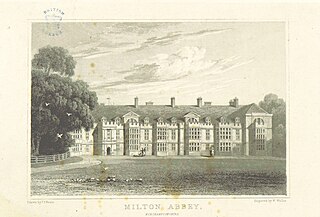List of Members of Parliament elected in the British general election of 1710 .
Contents
| 1st Parliament | (1705-1708) |
| 2nd Parliament | (1708) |
| 3rd Parliament | (1710) |
| 4th Parliament | (1713) |
| 5th Parliament | (1715) |
This is a list of the 558 MPs or Members of Parliament elected to the 314 constituencies of the Parliament of Great Britain in 1710, the 3rd Parliament of Great Britain, and their replacements returned at subsequent by-elections, arranged by constituency. [1]

The Parliament of Great Britain was formed in 1707 following the ratification of the Acts of Union by both the Parliament of England and the Parliament of Scotland. The Acts created a new unified Kingdom of Great Britain and dissolved the separate English and Scottish parliaments in favour of a single parliament, located in the former home of the English parliament in the Palace of Westminster, near the City of London. This lasted nearly a century, until the Acts of Union 1800 merged the separate British and Irish Parliaments into a single Parliament of the United Kingdom with effect from 1 January 1801.
The reference, in the constituency section of the table, to the numbers of seats in a constituency has no relevance except to make clear how many members were elected in a particular constituency. Peers of Ireland are differentiated from the holders of courtesy titles by including the succession number to the peerage, i.e. The 1st Earl of Upper Ossory is an Irish peer and Viscount Dupplin is the holder of a courtesy title.
The Peerage of Ireland consists of those titles of nobility created by the English monarchs in their capacity as Lord or King of Ireland, or later by monarchs of the United Kingdom of Great Britain and Ireland. The creation of such titles came to an end in the 19th century. The ranks of the Irish peerage are Duke, Marquess, Earl, Viscount and Baron. As of 2016, there were 135 titles in the Peerage of Ireland extant: two dukedoms, ten marquessates, 43 earldoms, 28 viscountcies, and 52 baronies. The Crown of the United Kingdom of Great Britain & Northern Ireland continues to exercise jurisdiction over the Peerage of Ireland, including those peers whose titles derive from places located in what is now the Republic of Ireland. Article 40.2 of the Irish Constitution forbids the state conferring titles of nobility and a citizen may not accept titles of nobility or honour except with the prior approval of the Government. As stated above, this issue does not arise in respect of the Peerage of Ireland, as no creations of titles in it have been made since the Constitution came into force.
A courtesy title is a title that does not have legal significance but rather is used through custom or courtesy, particularly, in the context of nobility, the titles used by children of members of the nobility.
Elections took place in October, 1710
| Table of contents: A B C D E F G H I J K L M N O P Q R S T U V W X Y Z By-elections Changes |







